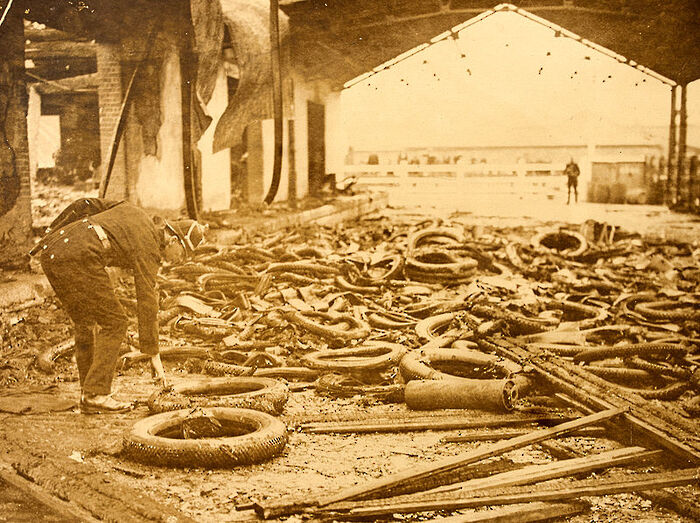An architecture of unity and division
In light of Theresa May’s announcement that post-Brexit Britain will not stay in the customs union, Nadia Hourihan worries for the future of the Irish border

As of today, the Berlin wall has been down for as long as it was up.
10316 days up. 10316 days down.
I’m writing this on Monday, and Varsity won’t go to print until Friday, so by the time you read this, the wall of perfect symmetry between freedom and captivity will have fallen.
But as some walls fall, others look to rise.
Today Theresa May has declared her government opposed to any form of customs union membership after Brexit. A hard border suddenly looks a lot more likely than it did yesterday. On a day when we should be celebrating Europe’s erasure of hard borders, I find myself tormented by the prospect of a hard border returning to my own country.
Late last year, British state papers from 1987 were declassified that hinted at a history at odds with the spirit of today’s anniversary; one where, two years before the Berlin wall came crashing down, an East German-style border might have been erected along the Irish border. The state papers revealed a proposal to build a physical border along the 310 miles that wriggle between Northern Ireland and the Republic – a border that doesn’t follow natural boundaries and cuts across 180 odd roads. It was a nutty proposal then – so nutty that the debate was cautiously kept behind closed doors.
Today, the debate over a hard border in Ireland has been kicked out into the open.
There will never be an East German-style border between Northern Ireland and the Republic (at least I bloody well hope not) but Theresa May’s government is making it all too clear that we are living not through a time of unity, but a time of division.
The DUP have ruled out any fudge whereby Northern Ireland might have a different relationship with the European Union to the rest of the UK. Over Christmas, it looked as though DUP leader Arlene Foster’s belligerence would force HMG to soften its Brexit plans in regards to the Irish Sea border. Now, it looks as though her intransigence will harden Brexit.
Seamus Leheny, Policy Manager for the Freight Transport Association in Northern Ireland, sang a rather different tune this morning. He tweeted that “We’re edging closer to controls on Irish Sea Ports”.
The ‘unpleasant sheet of water’ between Great Britain and the island of Ireland is being whipped about by the winds of change. Its future only looks choppier.
If the Tories do renege on their oaths of fealty to the DUP, then Northern Unionists will find themselves walking down memory lane. Should a sea border emerge, it will not be the first of its kind. In 1939, Britain placed controls on anyone arriving on the island of Ireland, and in 1940 you couldn’t travel in either direction without a travel permit.
The precedent for a sea border exists. But is there a precedent for such a border being considered while the DUP, a party notorious for its willingness to ‘cut off its eyelids’ so as not to blink during negotiations, is propping up a minority government?
This is terra incognita.
Over Christmas, my Dad and I went on a road trip across the Irish borderlands. We were never stopped. And we could barely tell where one country stopped, and another began. (My Dad suspected that the manicured hedgerows and absence of potholes announced our arrival in Northern Ireland. Google Maps disagreed.)
It was a million miles away from the stories he’d tell me of border crossings in the 70s, when my grandparents’ car would be stopped by young soldiers with guns.
Our cross-border road-trip was pleasant and peaceful. We were there primarily as tourists; we spotted the Game of Thrones cast (Dad even tried to get a photo with Maisie Williams, to my almighty embarrassment). But it wasn’t all fun and games; Dad was making deliveries to clients as we drove. If a hard border is put in place, my Dad and many others north and south of the border will have to stomach great upset to their businesses, just as they’re getting back on their feet after a recession which floored them.
My Dad isn’t unique. Up to 35,000 people commute across the border every day, and many more are in some way dependent upon the many convoluted supply chains that criss-cross the border. Custom controls will play havoc with the all-island economy, and the psyches of border residents who are too often dependent on the invisibility of the border.
It just doesn’t feel fair. It doesn’t feel sensible. It doesn’t even feel real
 News / Caius mourns its tree-mendous loss23 December 2025
News / Caius mourns its tree-mendous loss23 December 2025 News / Cambridge welcomes UK rejoining the Erasmus scheme20 December 2025
News / Cambridge welcomes UK rejoining the Erasmus scheme20 December 2025 News / CUP announces funding scheme for under-represented academics19 December 2025
News / CUP announces funding scheme for under-represented academics19 December 2025 News / King appoints Peterhouse chaplain to Westminster Abbey22 December 2025
News / King appoints Peterhouse chaplain to Westminster Abbey22 December 2025 Interviews / Politics, your own way: Tilly Middlehurst on speaking out21 December 2025
Interviews / Politics, your own way: Tilly Middlehurst on speaking out21 December 2025








